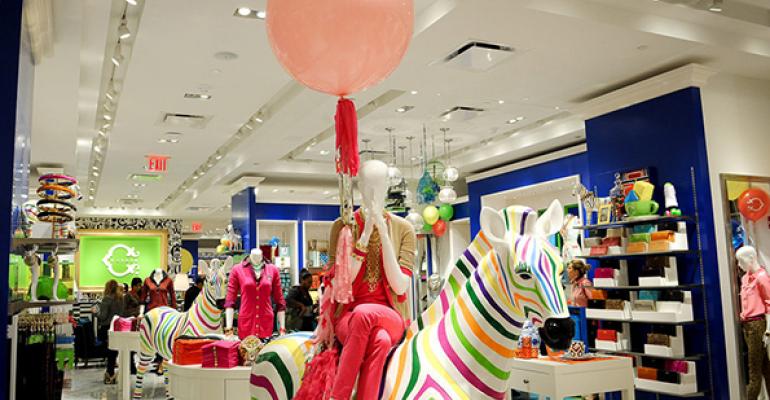C. Wonder, the fast-fashion chain launched four years ago by Chris Burch, is closing its doors. Several retail analysts lauded the chain as one of the best new retail concepts. It sold accessories, apparel, and home goods at mid-range price points.
“You can understand why companies were so excited about C. Wonder,” says Faith Hope Consolo, chairman of the retail group for Douglas Elliman Real Estate. “Its pedigree was flawless, given that Chris Burch had launched other brands successfully. Tory Burch, which he helped found, is a billion-dollar business today. And the stores were fun to shop and colorful. It was impossible not to walk in.”
Affordable doesn’t mean cheap
Despite C. Wonder’s positive buzz, many industry experts aren’t all that surprised by its demise. The chain faced a lot of challenges, both internal and external.
“I thought [Burch] had a great concept, but fast fashion is a very competitive space,” says Steven B. Greenberg, president of The Greenberg Group, a N.Y.–based real estate firm that exclusively represents retailers nationally.
“It comes down to product, timing, and real estate,” Consolo says, pointing out that the accessories business is notoriously volatile. “A bag, a bracelet, a scarf that is a must-have one season is relegated to a back drawer the next.”
While C. Wonder’s goods were supposed to be more affordable versions of preppy brands such as Tory Burch and even luxury brands such as Hermès, some shoppers complained about the quality of the merchandise.
“Affordable doesn’t mean cheap,” Consolo says. “Ultimately, because the merchandise was too similar to other brands, and not of the quality many expected for a mid-level price point, it also was all too easy to walk out without buying anything.”
C. Wonder was launched at a time when still-recovering shoppers were focusing more on their homes and electronics items, according to Consolo. Shoppers overdosed on apparel pre-downturn. Other brands including Coach also struggled, but were older and better established.
Unlike C. Wonder, accessories chains Charming Charlie’s and Francesca’s are doing well. “They sell at a much lower price point and are in the appropriate real estate,” Consolo points out. “They fulfill the expectations of fashionable affordable merchandise and usually aren’t in the most expensive fashion districts or malls.”
Paying too much for real estate
Consolo sees a clear difference between C. Wonder and other chains that continue to thrive. “The haves make their identity clear and don’t disappoint the consumer,” she says. “The have-nots over promise and under deliver. And they pay too much for real estate.
At one time, C. Wonder had 32 stores. Various reports indicate the chain has already shuttered more than half of its stores and filed a notice with the New York State Department of Labor that all 79 C. Wonder employees at the company’s headquarters would be laid off.
Burch opened the first retail space of C. Wonder in 2011 and expanded rapidly. He was “in a big rush to open a lot of stores,” according to Greenberg.
“We’ve seen too many companies ramp up quickly and then fail,” Greenberg says. “That’s why we recommend that retailers take a conservative approach, which offers the opportunity to get the best real estate deals and the best locations. It also allows you to figure out what’s working and what’s not working with your existing locations.”
But it wasn’t just the pace of the expansion that tripped up C. Wonder. It also opened it locations it couldn’t afford.
“C. Wonder made the classic error of opening too many stores too quickly in very expensive locations,” Consolo notes. “The company opened nearly three dozen stores in A++ malls and street locations, paying high rents that would be hard to justify with mid-priced merchandise. There’s only so long even an extraordinarily successful investor such as Chris Burch can keep a money-losing venture going.”
Greenberg says the cardinal rule in retail is that rent should never exceed 10 percent of the sales. “But a lot of retailers break that rule, and once rent exceeds 10 percent, it jeopardizes those locations.”
Landlords shouldn’t have much trouble backfilling C. Wonder’s dark stores. Menswear retailers and brands continue to expand, and C. Wonder stores would be about the right size, according to Consolo. Additionally, she wouldn’t be surprised to see ULTA look at some of the locations.
“The good thing, at least for the landlords, about C. Wonder taking these terrific locations is that there likely is a waiting list for them,” Consolo says.

